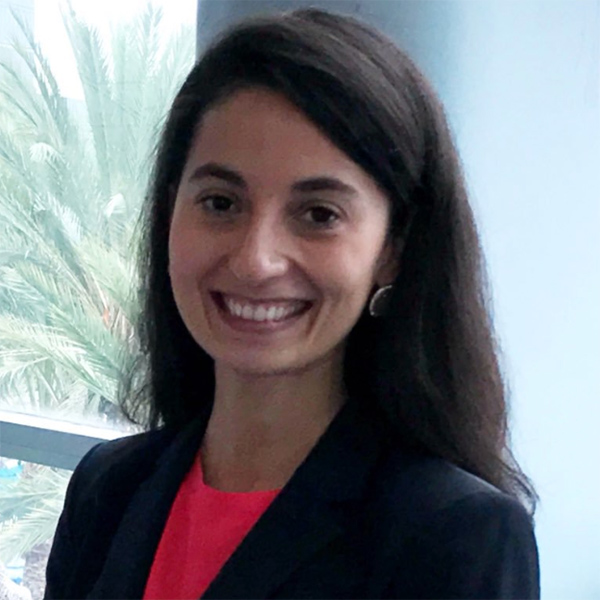ACC FIT Member Spotlight: Nosheen Reza, MD

Each month, the ACC On-Call For FITs newsletter highlights the achievements of one Fellow in Training (FIT). The Section would like to recognize Nosheen Reza, MD, adult cardiology FIT at the University of Pennsylvania in Philadelphia, PA.
In this interview, Reza describes her involvement with the ACC, plans after fellowship, interests outside of cardiology and advice for other FITs.
What are your plans after cardiology fellowship?
I am currently an advanced heart failure and transplant cardiology fellow at the University of Pennsylvania. This is my fifth and last year as an FIT! I am gearing up for the next stage of my career in an academic cardiovascular medicine program practicing at the intersections of the genetic cardiomyopathy and advanced heart failure/transplant cardiology, and in a position that also incorporates my enthusiasm for leadership, teaching, inclusion and quality improvement.
What are your research interests?
During my third and fourth years of fellowship, I was the University of Pennsylvania's first postdoctoral fellow in a new National Institutes of Health National Human Genome Research Institute T32 program in genomic medicine. I pursued research training in cardiovascular genetics and genomics and specialized clinical training in the Penn Center for Inherited Cardiovascular Disease.
My scholarship has focused on clinical outcomes of Mendelian disease and genomic approaches to the functional annotation of rare variants. During this time, I also participated in the care of patients with inherited cardiomyopathies, including hypertrophic, dilated, restrictive and arrhythmogenic phenotypes.
What are your hobbies outside of cardiology?
I spend too much money on live music and comedy shows, but I try to win it back at local trivia nights with friends. I am an avid "apartment gardener" and have 17 plants in my apartment.
I am also a die-hard University of Virginia sports fan, and I traveled around the country earlier this year to watch the men's basketball team win in the NCAA Elite Eight, Final Four and National Championship.
How do you approach a work-life balance?
.jpg)
In the last two years, three of my close family members passed away – two from cardiovascular disease – and a close physician friend of mine took his own life. Experiencing and enduring through these losses profoundly changed my approach to life and medicine. Patience, empathy and gratitude have taken on new meanings for me, and I try to practice them every day.
Do you have any mentors that you would like to recognize?
I have been very fortunate to maintain several relationships from my residency at the Massachusetts General Hospital, as well as cultivate new ones at Penn.
Malissa J. Wood, MD, FACC, was my first female cardiology attending in residency. She and Ada C. Stefanescu Schmidt, MD, MSc, have continued to be supportive long-distance mentors to me. Frank E. Silvestry, MD, FACC; Srinath Adusumalli, MD, MSc, FACC; Victor A. Ferrari, MD, FACC; and Thomas P. Cappola, MD, MSc, FACC, encouraged me to get involved with the ACC early in fellowship and have been incredibly generous sponsors. Anjali T. Owens, MD; Marietta S. Ambrose, MD, MPH, FACC; and Mariell Jessup, MD, FACC, have also been invaluable mentors and resources for my clinical and academic development.
How did you first become involved with the ACC?
I first became involved with the ACC in fall 2016 when I gained interest in organizing an ACC Pennsylvania Chapter Women in Cardiology (WIC) event.
I worked with state chapter leadership for a year and a half, and in March 2018, the ACC Pennsylvania WIC Task Force, led by Kathryn L. Berlacher MD, FACC; Ritu Thamman, MD, FACC, and myself, hosted a wonderfully successful state ACC WIC networking mixer at the 67th Annual Scientific Sessions (ACC.18) in Orlando, FL.
This event was the launching point for my deeper involvement in ACC WIC Section activities in the College.
What other ACC activities are you involved in?
This year, I am a member of the ACC FIT Section Leadership Council and am specifically focused on member engagement. I am working to incorporate more ACC FIT Section members in ACC.20 Together With World Congress of Cardiology (ACC.20/WCC) programming, as I am the ACC FIT Section member of the ACC.20/WCC Heart Failure and Cardiomyopathies Program Committee.
On the state level, I continue to be involved in the ACC WIC Task Force and am collaborating with ACC members from around Pennsylvania on the newly formed Education Task Force. I loved my experiences at the 2018 ACC Legislative Conference and the 2019 Teaching Tomorrow's Teachers program.
Last year, I served as an editorial fellow for ACC's FIT and WIC Sections, and this year, I am an FIT advisor and editorial consultant for JACC: Case Reports.
What advice do you have for other ACC FIT Section members looking to get more involved with the College?

As my program's chief fellow, I adopted a couple of mantras that still guide the way I think and try to lead. One is "talent is universal; opportunity is not." I was rejected from every ACC position for which I applied for nearly two and a half years.
Certainly, there were times when I became discouraged about my prospects, but I kept applying for opportunities because I believed in ACC's mission.
Slowly, the rejections – which helped me develop my personal leadership vision – became acceptances. Speak early to mentors at your institutions, your state chapter leaders and other ACC FIT Section member about your interest with involvement in the College.
Be intentional about how you want to contribute and develop your clinical and research skills through the College. The return on your investment will be beyond your expectations!

